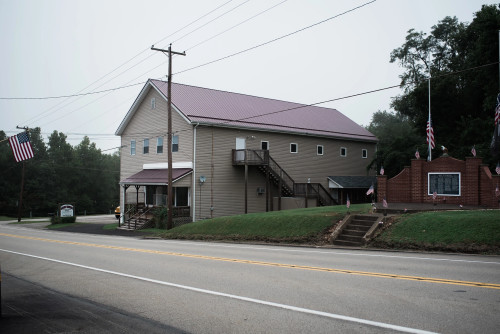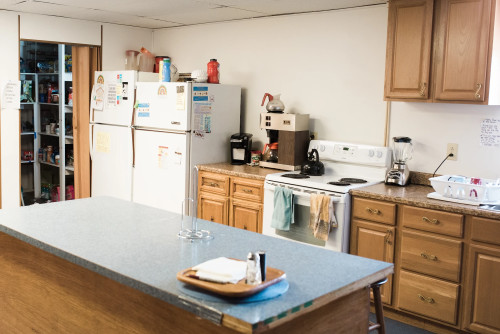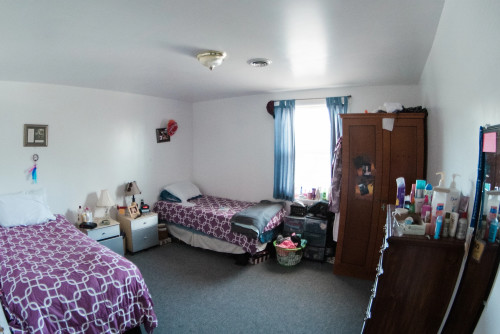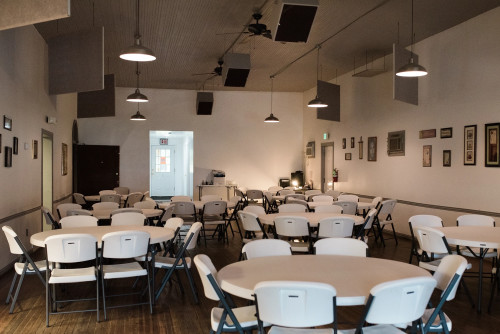






The Life Recovery House
Treatment Focus
This center primarily treats substance use disorders, helping you stabilize, create relapse-prevention plans, and connect to compassionate support.
Primary Level of Care
Offering intensive care with 24/7 monitoring, residential treatment is typically 30 days and can cover multiple levels of care. Length can range from 14 to 90 days typically.
This provider hasn't verified their profile's information. Are you the owner of this center? Claim your listing to better manage your presence on Recovery.com.
Treatment Focus
This center primarily treats substance use disorders, helping you stabilize, create relapse-prevention plans, and connect to compassionate support.
Primary Level of Care
Offering intensive care with 24/7 monitoring, residential treatment is typically 30 days and can cover multiple levels of care. Length can range from 14 to 90 days typically.
Provider's Policy
The Life Recovery House also accepts Community Care, and Perform Care. Our admissions team will work with you to explore the right payment options based on your needs, ensuring you get the best possible treatment.
The Life Recovery House
The Life Recovery House
About The Life Recovery House
The Life Recovery House caters women ages 21 and up who are battling substance use disorders. They are a licensed, faith-based halfway house offering 3.1 inpatient, non-hospital residential care. With a 6-month program, they guide each woman through recovery with structure, community, and spiritual support. They also have a 28-bed capacity and a 24/7 staff available.
Balance of Science and Spirituality
Their approach blends evidence-based therapy and spiritual care. Women take part in individual counseling, 12-Step and Christ-centered groups, relapse prevention, temperament therapy, and trauma-informed models. Daily prayer, Bible study, and meditation are also part of the program that they offer. Classes in life skills, nutrition, art, yoga, and drumming are also offered.
Meaningful Activities that Inspire Growth
Residents live in a home with shared rooms, clean bathrooms, and healthy meals. Outdoor views of the Appalachian Mountains bring peace, and nearby places like Ohiopyle and Falling Water offer fun, sober outings. Transportation is provided for off-site meetings, appointments, and activities. They are a faith-filled community that helps women grow, find purpose, and experience the joy of recovery.
Residency Requirements & Expectations
To reside at Life Recovery House, clients must have at least 21 days clean and sober and agree to all GWLRH rules, including staff directives and House Rules. Weekly attendance at house meetings and off-site 12-Step or recovery meetings is required. Residents must also be engaged in work, school, outpatient therapy, or community service, and actively participate in a 12-Step program with a sponsor. Random drug and alcohol testing is mandatory.
Clients must be out of bed by 7:00 AM, with rooms cleaned by 8:00 AM. Chores are assigned weekly, and participation in the Three Phase Program of Treatment is required throughout their stay.
Center Overview
Treatment Focus
This center primarily treats substance use disorders, helping you stabilize, create relapse-prevention plans, and connect to compassionate support.

Insurance Accepted
Cash Pay Rates
Estimated Cash Pay Rate
Center pricing can vary based on program and length of stay. Contact the center for more information. Recovery.com strives for price transparency so you can make an informed decision.
Levels of Care





Treatment
Specializations
Co-Occurring Disorders
A person with multiple mental health diagnoses, such as addiction and depression, has co-occurring disorders also called dual diagnosis.
Drug Addiction
Drug addiction is the excessive and repetitive use of substances, despite harmful consequences to a person's life, health, and relationships.
Who We Treat
Women only
Women attend treatment in a gender-specific facility, with treatment delivered in a safe, nourishing, and supportive environment for greater comfort.
Approaches
Individual Treatment
Individual care meets the needs of each patient, using personalized treatment to provide them the most relevant care and greatest chance of success.
Christian
Through surrender and commitment to Christ, patients refocus the efforts and source of their recovery with clinical and spiritual care.
Twelve Step
Incorporating spirituality, community, and responsibility, 12-Step philosophies prioritize the guidance of a Higher Power and a continuation of 12-Step practices.
Gender-Specific
Separate treatment for men or women can create strong peer connections and remove barriers related to trauma, shame, and gender-specific nuances.
Therapies
1-on-1 Counseling
Patient and therapist meet 1-on-1 to work through difficult emotions and behavioral challenges in a personal, private setting.
Meditation & Mindfulness
A practiced state of mind that brings patients to the present. It allows them to become fully aware of themselves, their feelings, and the present moment.
Art Therapy
Visual art invites patients to examine the emotions within their work, focusing on the process of creativity and its gentle therapeutic power.
Life Skills
Teaching life skills like cooking, cleaning, clear communication, and even basic math provides a strong foundation for continued recovery.
Medication-Assisted Treatment
Combined with behavioral therapy, prescribed medications can enhance treatment by relieving withdrawal symptoms and focus patients on their recovery.
Nutrition Counseling
Nutritious food helps patients heal from within, setting them up for mental and bodily wellness as they learn about healthy eating.
Psychoeducation
This method combines treatment with education, teaching patients about different paths toward recovery. This empowers them to make more effective decisions.
Relapse Prevention Counseling
Relapse prevention counselors teach patients to recognize the signs of relapse and reduce their risk.
Spiritual Care
Tending to spiritual health helps treatment become more effective, allowing patients to better cope with their emotions and rebuild their spiritual wellbeing.
Twelve Step Facilitation
12-Step groups offer a framework for addiction recovery. Members commit to a higher power, recognize their issues, and support each other in the healing process.
Substances We Treat
Alcohol
Using alcohol as a coping mechanism, or drinking excessively throughout the week, signals an alcohol use disorder.
Drug Addiction
Drug addiction is the excessive and repetitive use of substances, despite harmful consequences to a person's life, health, and relationships.
Languages
Aftercare
Experience
Personal Amenities
Special Considerations
Gender-specific groups
Patients in gender-specific groups gain the opportunity to discuss challenges unique to their gender in a comfortable, safe setting conducive to healing.
Activities
Yoga
Yoga is both a physical and spiritual practice. It includes a flow of movement, breathing techniques, and meditation.
Smoking and Vaping Policy

What people are saying
We love hearing about your treatment experience
Help individuals and families seeking treatment by sharing your first-hand experience with this treatment provider. Review Guidelines.





